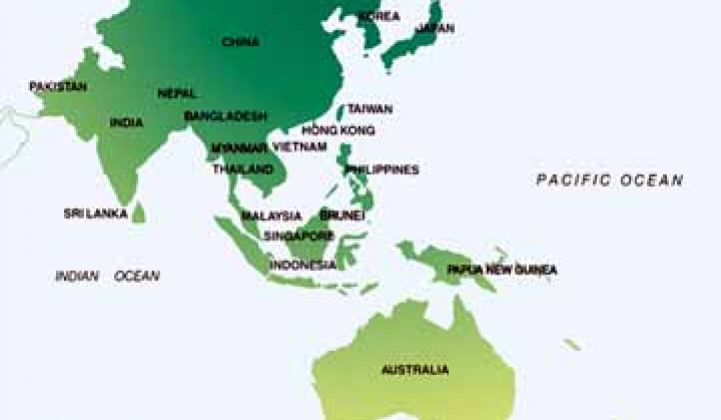General Electric announced an addition to its smart grid portfolio today, bringing in the Australian company, Opal Software. GE’s Digital Energy sector will use the software as part of its suite of smart grid solutions, delivering Supervisory Control and Data Acquisition Systems (SCADA) and Distribution Management Systems (DMS) software to utilities.
But it’s not just the software that has GE interested. Australia, and its homegrown companies, offers an ideal point from which to jump into the Asian market. “Opal Software’s products and project management services are integral to the delivery of GE Energy projects,” Matt McKenzie, general manager in the Asia region for GE’s Digital Energy business, said in a statement.
“By bringing Opal Software’s proven technologies together with GE’s solution platforms, our talented teams will drive the next wave of software solutions. Opal Software will help secure GE as a smart grid technology leader and meet the needs of the fast-growing Asia Pacific region.”
Opal Software offers both data migration and simulation capabilities that allow for utilities to switch between multiple platforms, and can also be integrated with other GE software. Although Asia -- and China, specifically -- is surely the ultimate goal for GE, the Aussie company also has a range of customers in Europe and North America.
The technology that GE just scooped up by acquiring Opal allows for the seamless integration of all kinds of acronyms. SCADA systems and DMS can be connected into corporate IT systems, including Customer Information Systems (CIS), Geographic Information Systems (GIS) and others. Simply put, for a smart grid to really be smart, all of these systems must effectively interact while still ensuring privacy and security. This is no surprise, as the technology giant has said it wants to focus on bringing more intelligence and networking to existing product categories.
There are other Australian companies that could also be ripe for acquisition by larger corporations that are looking to secure their foothold in smart grid and energy efficiency markets. BuildingIQ, which uses weather information to enhance building management systems that are already in place, is a prime example.
Within Australia, EnergyAustralia is doing a $100 million Smart Grid, Smart City project that, if successful, could provide a roadmap for smart grid projects across the country. While General Electric is not involved in that project, Australia is a good test bed for technologies, and Paul Adler at the Australian Trade Commission, hopes to see more partnerships with Australian firms and U.S. firms -- even if the ultimate goal is Asia and not Down Under.
“Many view Australia as a stepping stone into the big pie, which is China,” said Adler. “Australia is a fantastic incubator.”



